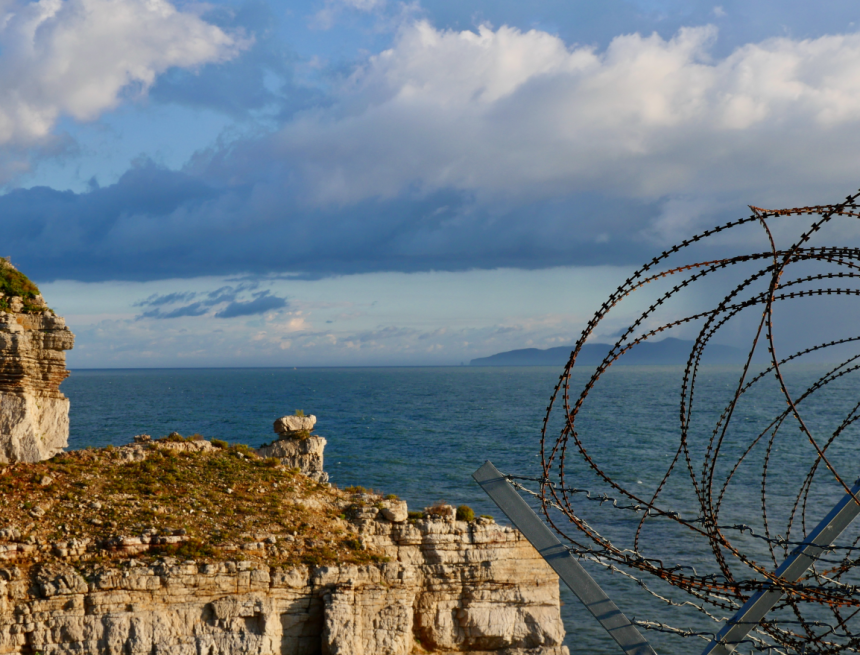We have not been here before. The BBC is used to coming under pressure from political parties, well-funded pressure groups and powerful newspaper publishers. But the threat of a lawsuit from the US president is unprecedented.
This latest furore is dangerous because it comes at a time when democracy faces an information crisis. The foundations of informed democratic debate are under attack across the globe from a combination of AI-generated deepfakes, hostile state propaganda and algorithms that amplify divisions through social media. We have already seen how Elon Musk, the wealthiest man on the planet, is prepared to use his own social media platform, X, to interfere in the affairs of other countries and exert a chilling influence on democracies.
The tech platforms through which most media and news content is distributed, discovered, consumed and shared – X, Facebook, Instagram, WhatsApp, Amazon Web Services and Prime Video, TikTok USA, YouTube and Google – are owned or controlled by six American billionaires who pursue self-interested agendas, aided by a litigious president intent on browbeating the media. In the US, the communications regulator has acted as an arm of the executive rather than defending free speech, and sycophantic media executives have caved in to politically motivated legal threats. Meanwhile, Trump has removed virtually all funding from public television and radio.
It could happen here. The BBC is our most effective defence against the dangers of global media power concentrated in the hands of a few private individuals, but we have very few obstacles to prevent a populist or authoritarian government from undermining it. This is a moment of peril that demands a new approach to governance and funding that secures the BBC’s future. We at the British Broadcasting Challenge have set out a number of proposals for achieving this.
First, the government must grant the BBC a permanent charter that establishes it in perpetuity and enshrines its core principles of independence, public service and universality. To ensure proper accountability, an agreement with the culture secretary – renewable every 10 years – would set the parameters for BBC services and priorities in accordance with those core principles.
Second, it should create a new BBC governance board whose members – crucially – should be appointed by an independent body, and be responsible for regulating the BBC’s editorial performance and setting its strategic direction. Its members would possess genuine areas of expertise, be truly representative of different regions of the UK, and would be subject to parliamentary scrutiny and approval through the culture, media and sport select committee. This governance board would be separate from the BBC management board, which would be chaired by the director general, who would be responsible for day-to-day leadership and management.
Third, the government must recommit to the fundamental principle of BBC universality. That means geographical universality, ensuring BBC services are free at the point of use throughout the UK, and universality of content, providing quality programmes across the board that reflect the lives of nations and regions throughout the country. The unifying nature of the BBC is more important than ever in an increasingly fragmented and polarised media world, particularly as premium content moves behind paywalls. The rich will always have the means to access quality news and content; the BBC guarantees that privilege as a right for everyone.
It is therefore essential that the BBC continues to offer popular audience-pulling programmes, such as The Traitors, Match of the Day, Gavin and Stacey and natural history, alongside major national events, if it is to stay at the heart of public life. But it must also continue to offer content that the market does not deliver: programmes for minority and niche audiences, current affairs programmes in prime time, creative risks that promote the work of new talent in music, drama and the arts, and coverage of women’s and disabled sports.
Fourth, the BBC must have a proper funding settlement that recognises the 30% cut in funding imposed over the past 15 years. At £3.35 a week, the licence fee is astonishing value for money, and the BBC still reaches 95% of the adult population each month. But it also provides a guaranteed stream of investment in the UK creative economy, sustaining directly or indirectly more than 50,000 jobs, as well as giving young people the opportunity to learn transferable creative and technical skills.
after newsletter promotion
We need a more open, confident and responsive BBC, liberated from the nervousness engendered by years of bullying, that genuinely listens to its viewers and listeners and finds new ways of engaging with audiences. We can achieve this through a new governance system that recognises the BBC’s worldwide reputation for independence, and insulates it from the kind of partisan political meddling that has created the current furore; and through a reformed universal funding system that takes account of people’s ability to pay.
With the BBC’s charter-renewal process about to start, this government has the opportunity to demonstrate that it has the courage, vision and determination to protect this priceless national asset. Will it seize the opportunity?
-
Pat Younge is the chair of the British Broadcasting Challenge, whose recommendations are contained in the report Renewing The BBC


